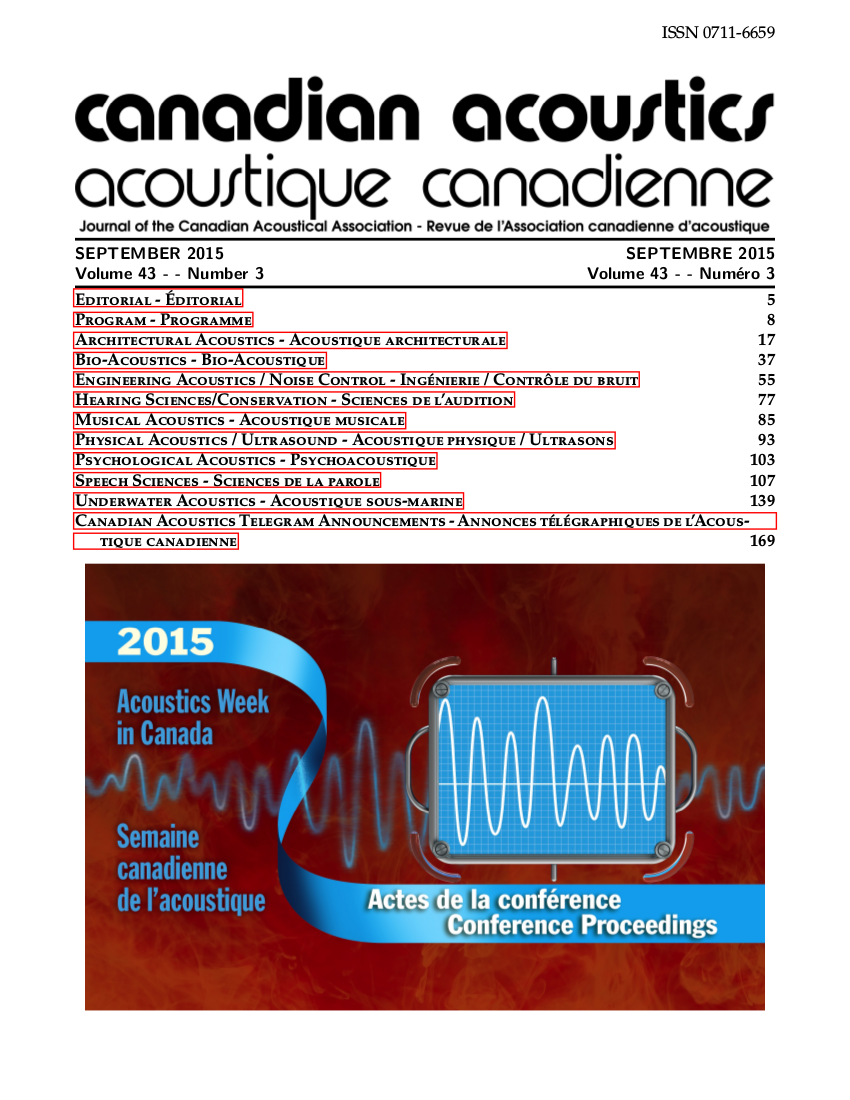Considerations for Acoustical Privacy within Commercial Tenant Space Fit-Outs
Abstract
Acoustical privacy is often overlooked in the design of commercial / office space fit-outs. This may be due to a number of factors – for example, those involved in the design of the fit-out may be unaware that acoustical privacy might be needed, or may be unaware that special design considerations need to be taken into account to address such needs. There are some laws and acts which address privacy of personal information (e.g. Canada’s PIPEDA: Personal Information Protection and Electronic Documents Act, and Ontario’s PHIPA: Personal Health Information Protection Act), and under these Acts, there is an obligation for commercial spaces where personal private information may be discussed to ensure that measures are implemented to maintain privacy of the information. This information may include personal health and financial information, as discussed in health care spaces, banking areas, or legal offices. In some cases, it may not be clear whether these Acts apply and / or how they address speech privacy (particularly as no limits are set in the Acts). Recent projects confirm that such acoustical privacy is not being properly addressed or implemented, or in some cases, not even considered in design. This article discusses some examples of such spaces and presents some common issues which lead to poor acoustic privacy, and modifications to standard designs which can be considered.Additional Files
Published
How to Cite
Issue
Section
License
Author Licensing Addendum
This Licensing Addendum ("Addendum") is entered into between the undersigned Author(s) and Canadian Acoustics journal published by the Canadian Acoustical Association (hereinafter referred to as the "Publisher"). The Author(s) and the Publisher agree as follows:
-
Retained Rights: The Author(s) retain(s) the following rights:
- The right to reproduce, distribute, and publicly display the Work on the Author's personal website or the website of the Author's institution.
- The right to use the Work in the Author's teaching activities and presentations.
- The right to include the Work in a compilation for the Author's personal use, not for sale.
-
Grant of License: The Author(s) grant(s) to the Publisher a worldwide exclusive license to publish, reproduce, distribute, and display the Work in Canadian Acoustics and any other formats and media deemed appropriate by the Publisher.
-
Attribution: The Publisher agrees to include proper attribution to the Author(s) in all publications and reproductions of the Work.
-
No Conflict: This Addendum is intended to be in harmony with, and not in conflict with, the terms and conditions of the original agreement entered into between the Author(s) and the Publisher.
-
Copyright Clause: Copyright on articles is held by the Author(s). The corresponding Author has the right to grant on behalf of all Authors and does grant on behalf of all Authors, a worldwide exclusive license to the Publisher and its licensees in perpetuity, in all forms, formats, and media (whether known now or created in the future), including but not limited to the rights to publish, reproduce, distribute, display, store, translate, create adaptations, reprints, include within collections, and create summaries, extracts, and/or abstracts of the Contribution.


